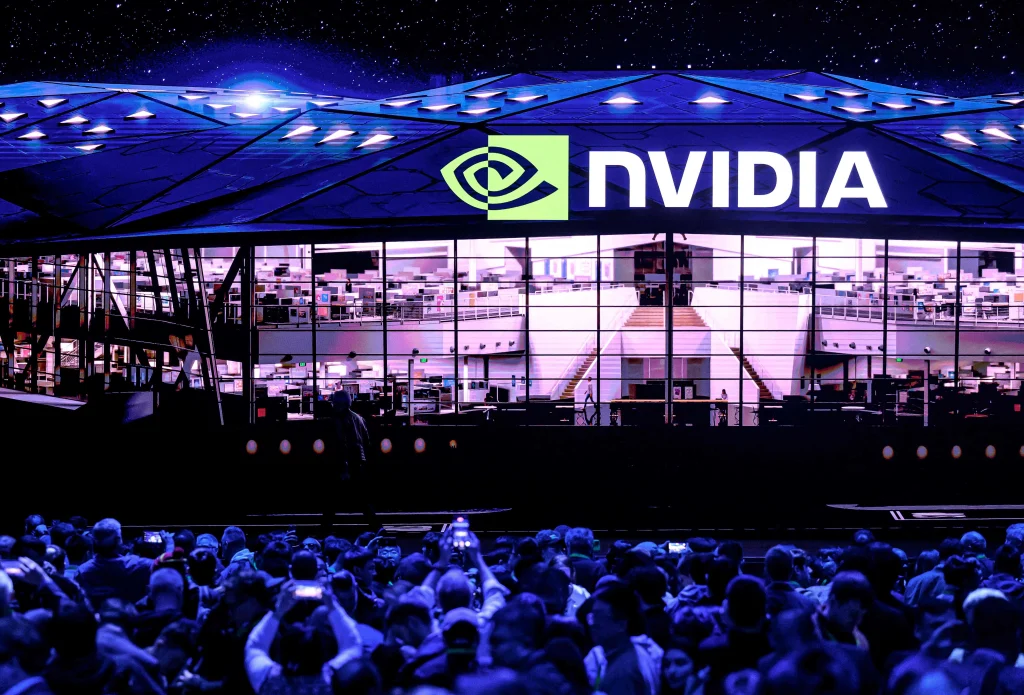IN THE weeks after the re-election of Donald Trump, the bosses of America’s tech giants worked hard to ingratiate themselves with the returning president, congratulating him publicly and dutifully turning up to his inauguration. Mark Zuckerberg, the boss of Meta, gushed that it was nice to have an administration that was “proud” of America’s tech champions.
There was good reason for the obsequiousness. During his campaign, Trump referred to Meta as an “enemy of the people”. Many in his Maga (make America great again) movement have accused America’s tech giants of censoring right-wing views. In 2021, JD Vance, now Trump’s vice-president, called the behemoths “parasitic”. Even the techies surrounding Trump, such as Elon Musk, belong to a different Silicon Valley tribe that is suspicious of Big Tech.
Three months in, and the bosses of America’s most valuable firms have little to show for all their toadying. Trump appears unwilling to spare them from the trustbuster’s snare, and is adding to their troubles with his trade war. On Apr 29, the White House accused Amazon of a “hostile and political act” after the company was reported to be planning to display the cost of tariffs for items sold through its website. (Amazon swiftly clarified that the idea had been considered only for Amazon Haul, where it sells ultra-cheap products, and that it would not be implemented.)
Alphabet is not alone. On Apr 14, hearings began in the FTC’s case against Meta, which the regulator accuses of having maintained an illegal monopoly (which the company denies) through its purchase of Instagram in 2012 and WhatsApp in 2014. Meta has reportedly sought Trump’s help in reaching a settlement with the FTC, with little success so far. The antitrust agencies are also suing Amazon and Apple and investigating Microsoft and Nvidia, for good measure.
BT in your inbox

Start and end each day with the latest news stories and analyses delivered straight to your inbox.
On top of all this comes Trump’s trade war. Apple assembles four-fifths of its iPhones and Macs in China, which explains why its share price fell by almost a quarter in the week after Trump unveiled his “reciprocal tariffs” on Apr 2. It recovered somewhat when carve-outs were announced for smartphones and PCs. Even so, an earlier 20 per cent rate on Chinese goods still applies. Prices for iPhones are likely to rise, weighing on already slowing sales. Apple is now reportedly planning to shift assembly of its America-bound smartphones from China to India by the end of 2026.
Nvidia is in the cross-fire, too. Prices for its chips, which are mostly produced abroad, are likewise set to rise for American customers, which may cool the firm’s red-hot growth. An even bigger problem is its business in China, which accounted for 13 per cent of revenue in 2024. The American government recently barred it from selling its H20 chip there without an export licence. Nvidia has said that the new rules will wipe US$5.5 billion from the value of its inventory, a sign that it expects to be granted few permits, if any. Although analysts reckon it will design a new, less powerful chip for export, the new restrictions will give a leg up to Huawei, a Chinese tech giant that is making ever more sophisticated artificial-intelligence (AI) chips.
As for Amazon, Bernstein, a broker, reckons that about a fifth of the goods it sells in America through its e-commerce platform are made in China, many of which now face import duties of 145 per cent. On May 2, the de minimis exemption, which spares from tariffs packages valued below US$800, will also be removed for Chinese wares.
Making matters worse, America’s tech giants are also at risk of becoming a “retaliatory lightning rod” in the trade war, notes Mark Shmulik of Bernstein. China’s watchdogs are already probing Alphabet and Nvidia. Last year, the country introduced rules to phase out products made by Microsoft, such as Windows, from government computers. Investors worry that an iPhone ban among state officials could follow.
Ursula von der Leyen, president of the European Commission, has talked of hitting America’s tech giants with levies in response to Trump’s tariffs. On Apr 23, the EU slapped Apple and Meta with 700 million euros (S$1 billion) in fines for breaching its Digital Markets Act – though that was much less than the maximum possible figure, perhaps signalling that Brussels wants to avoid an escalating trade conflict.
Then there are the indirect effects of Trump’s tariff war. Ad sales from Chinese e-commerce companies such as Shein and Temu, which rely heavily on the de minimis trade, could be jeopardised. Last year, Meta said that such firms accounted for a tenth of its ad revenue the year before. On Apr 25, Sundar Pichai, Alphabet’s boss, admitted on an earnings call that the removal of the de minimis exemption would create a “slight headwind” for its ad business. That may be just the start. If, as expected, America’s economy slows as a result of tariffs, ad spending more broadly could slump.
Big Tech’s cloud-computing revenues may take a hit as well. Enterprise customers and startups are already delaying committing themselves to contracts owing to uncertainty over economic conditions, according to JPMorgan Chase, a bank. A pullback in spending on AI, on which the tech giants are pinning their hopes for growth, seems possible. Johnson & Johnson, a pharmaceutical firm, recently said that it is cutting spending on AI projects that are not generating returns.
Some remain optimistic that the rest of the president’s term will be brighter for Big Tech. An insider at one of the giants says he believes that Trump, unlike his predecessor, is willing to “go out to bat” for America’s tech champions abroad. Trump’s first 100 days do not bode well, though. It could be a tricky four years for the tech titans.
©2025 The Economist Newspaper Limited. All rights reserved


